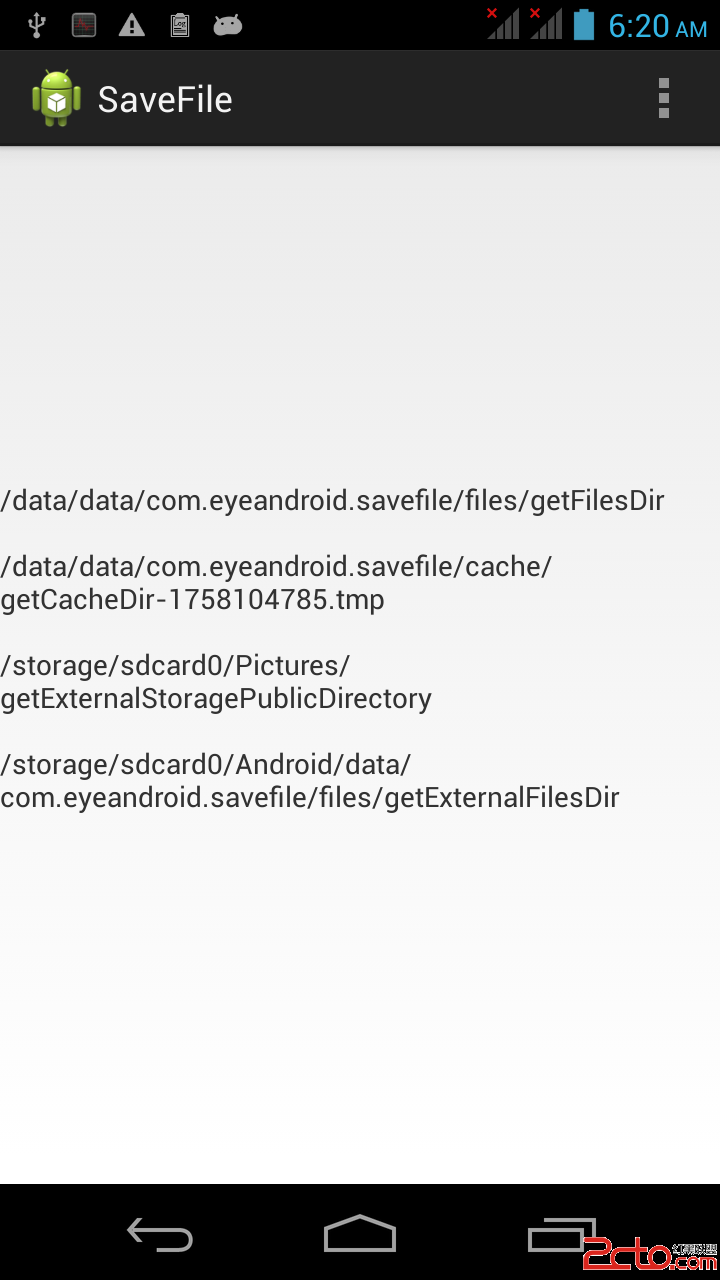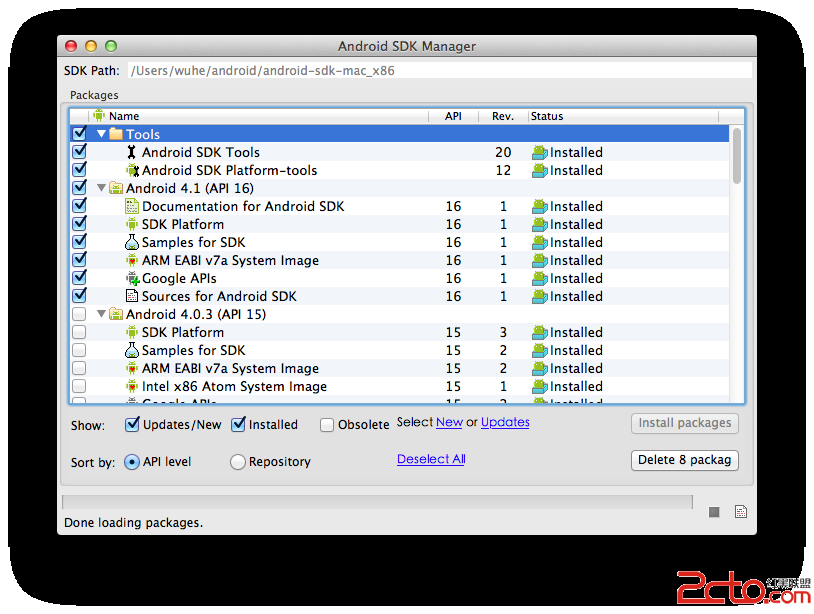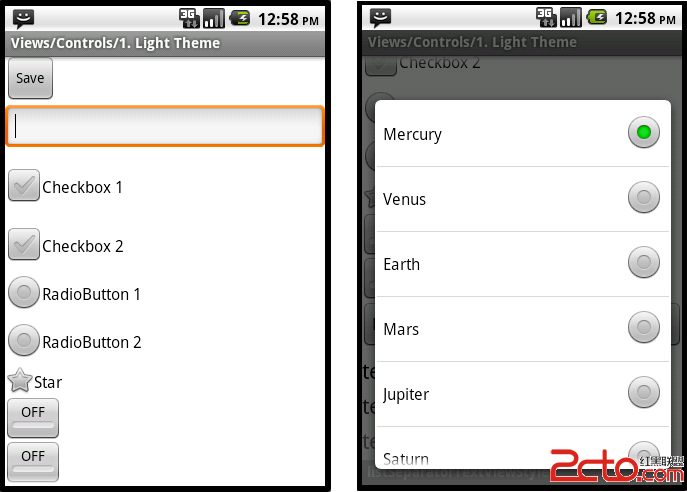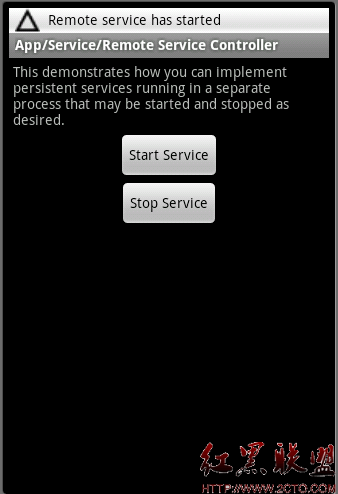Android中ListView分页加载数据
Android应用开发中,采用ListView组件来展示数据是很常用的功能,当一个应用要展现很多的数据时,一般情况下都不会把所有的数据一次就展示出来,而是通过分页的形式来展示数据,个人觉得这样会有更好的用户体验。因此,很多应用都是采用分批次加载的形式来获取用户所需的数据。例如:微博客户端可能会在用户滑动至列表底端时自动加载下一页数据,也可能在底部放置一个"查看更多"按钮,用户点击后,加载下一页数据。
下面通过一个Demo来展示ListView功能如何实现:该Demo通过在ListView列表的底部添加一个“查看更多...”按钮来加载新闻(模拟新闻客户端)分页数据。同时限定每次加载10条记录,但完全加载完数据后,就把ListView列表底部视图“查看更多...”删除。假设加载的数据总数为38 条记录。先看下该Demo工程的程序结构图:
其中包com.andyidea.bean中News.java类是新闻实体类,包com.andyidea.listview中paginationListViewActivity.java类是用来展示ListView列表。布局layout中包含三个布局文件,分别为:list_item.xml ,loadmore.xml ,main.xml 。下面分别贴下源码:
layout中的list_item.xml源码:
<span style="font-size:13px;"><?xml version="1.0" encoding="utf-8"?>
<LinearLayout
xmlns:android="http://schemas.android.com/apk/res/android"
android:layout_width="fill_parent"
android:layout_height="fill_parent"
android:orientation="vertical">
<TextView
android:id="@+id/newstitle"
android:layout_width="fill_parent"
android:layout_height="wrap_content"/>
<TextView
android:id="@+id/newscontent"
android:layout_width="fill_parent"
android:layout_height="wrap_content"/>
</LinearLayout></span>
layout中loadmore.xml源码:
<?xml version="1.0" encoding="utf-8"?>
<LinearLayout
xmlns:android="http://schemas.android.com/apk/res/android"
android:layout_width="fill_parent"
android:layout_height="fill_parent">
<Button
android:id="@+id/loadMoreButton"
android:layout_width="fill_parent"
android:layout_height="wrap_content"
android:text="查看更多..." />
</LinearLayout>
layout中main.xml源码:
<?xml version="1.0" encoding="utf-8"?>
<LinearLayout xmlns:android="http://schemas.android.com/apk/res/android"
android:orientation="vertical"
android:layout_width="fill_parent"
android:layout_height="fill_parent">
<ListView
android:id="@+id/lvNews"
android:layout_width="fill_parent"
android:layout_height="wrap_content"/>
</LinearLayou
包com.andyidea.bean中News.java类源码:
package com.andyidea.bean;
/**
* 新闻实体类
* @author Andy.Chen
* @mail Chenjunjun.ZJ@gmail.com
*
*/
public class News {
private String title; //标题
private String content; //内容
public String getTitle() {
return title;
}
public void setTitle(String title) {
this.title = title;
}
public String getContent() {
return content;
}
public void setContent(String content) {
this.content = content;
}
}
包com.andyidea.listview中paginationListViewActivity.java类源码:
package com.andyidea.listview;
import java.util.ArrayList;
import java.util.List;
import com.andyidea.bean.News;
import android.app.Activity;
import android.os.Bundle;
import android.os.Handler;
import android.util.Log;
import android.view.View;
import android.view.ViewGroup;
import android.widget.AbsListView;
import android.widget.AbsListView.OnScrollListener;
import android.widget.BaseAdapter;
import android.widget.Button;
import android.widget.ListView;
import android.widget.TextView;
import android.widget.Toast;
public class PaginationListViewActivity extends Activity implements OnScrollListener {
private ListView listView;
private int visibleLastIndex = 0; //最后的可视项索引
private int visibleItemCount; // 当前窗口可见项总数
private int datasize = 38; //模拟数据集的条数
private PaginationAdapter adapter;
private View loadMoreView;
private Button loadMoreButton;
private Handler handler = new Handler();
/** Called when the activity is first created. */
@Override
public void onCreate(Bundle savedInstanceState) {
super.onCreate(savedInstanceState);
setContentView(R.layout.main);
补充:移动开发 , Android ,





